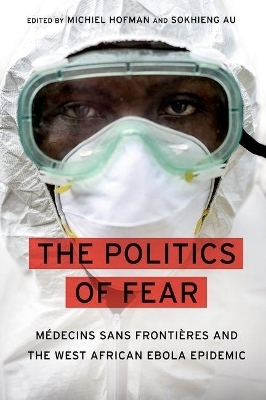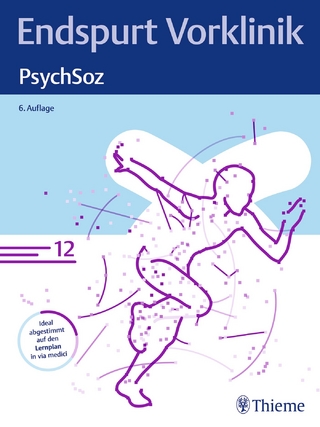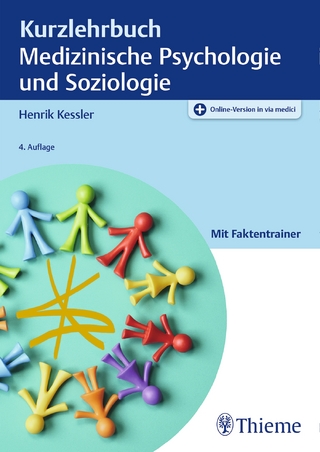
The Politics of Fear
Oxford University Press Inc (Verlag)
978-0-19-062447-7 (ISBN)
The 2014-2015 Ebola epidemic in West Africa was an unprecedented medical and political emergency that cast an unflattering light on multiple corners of government and international response. Fear, not rational planning, appeared to drive many decisions made at population and leadership levels, which in turn brought about a response that was as uneven as it was unprecedented: entire populations were decimated or destroyed, vaccine trials were fast-tracked, health staff died, untested medications were used (or not used) in controversial ways, humanitarian workers returned home to enforced isolation, and military was employed to sometimes disturbing ends.
The epidemic revealed serious fault lines at all levels of theory and practice of global public health: national governments were shown to be helpless and unprepared for calamity at this scale; the World Health Organization was roundly condemned for its ineffectiveness; the US quietly created its own African CDC a year after the epidemic began. Amid such chaos, Médecins sans Frontières was forced to act with unprecdented autonomy -- and amid great criticism -- in responding to the disease, taking unprecedented steps in deploying services and advocating for international aid.
The Politics of Fear provides a primary documentary resource for recounting and learning from the Ebola epidemic. Comprising eleven topic-based chapters and four eyewitness vignettes from both MSF- and non-MSF-affiliated contributors (all of whom have been given access to MSF Ebola archives from Guinea, Sierra Leone, and Liberia for research), it aims to provide a politically agnostic account of the defining health event of the 21st century so far, one that will hopefully inform current opinions and future responses.
Michiel Hofman worked on MSF field missions between 1993 and 1998 as Emergency Coordinator and Head of Mission in Liberia, DRC, Bosnia, Burundi, Sri Lanka, Brazil, South Sudan, and Kosovo, returning to his other career as freelance journalist between missions. Between 1999 and 2001, he co-founded the Antares Foundation, a Dutch non-profit organization that supports local NGOs in providing psycho-social support for staff working in high-stress environments. He returned to MSF in 2001 as Country Director in Russia, Operations Director in Amsterdam, and Country Director for Afghanistan. Since 2011 he has worked as senior humanitarian specialist for MSF based out of Belfast, concentrating on research, training, and operational support as well as publications in the humanitarian field. Sokhieng Au is a program staff member with the Advocacy and Analysis Unit of Médecins sans Frontières and a research fellow in the Cultural History since 1750 program at Katholieke Universiteit, Leuven, Belgium. She earned a PhD in history from University of California, Berkeley, and an MPH from the Johns Hopkins Bloomberg School of Public Health.
Contents
Contributors
Preface, Christopher Stokes
Introduction, Michiel Hofman and Sokhieng Au
The Response
1. Doctors against Borders: Médecins sans Frontières and Global Health Security, Joao Nunes
2. Whose security? Militarization and securitization during West Africa's Ebola Outbreak, Adia Benton
Vignette 1. A few days in July, Lindis Hurum
The System
3. The 'humanitarian' response to the Ebola epidemic in Guinea. Between routine and exceptions. Jean-Francois Caremel, Sylvain Landry B. Faye and Ramatou Ouedraogo
4. The initial international aid response in Sierra Leone - A viewpoint from the field, Thomas Kratz
5. Dying of the Mundane in the Time of Ebola, Mit Philips
Vignette 2. Treating, Suffering, and Surviving Ebola: The Story of Prince, Prince Lahai and Patricia Carrick
Patients
6. How did Médecins sans Frontières Negotiate Clinical Trials of Unproven Treatments during the West African Ebola Epidemic? Annette Rid and Annick Antierens
7. Saving Dr. Khan, Timothy O'Dempsey
8. Finding an Answer to Ebola's Greatest Challenge, Armand Sprecher
Vignette 3. Children in the Ebola Treatment Centers, Patricia Carrick and Allie Tua Lappia
Containment
9. Fear and Containment. Contact Follow up Perceptions and Social Containment in Senegal and Guinea, Alice Desclaux, Moustapha Diop, and Stéphane Doyon.
10. Challenges of Instituting Effective Medevac Policies, Duncan McLean
Vignette 4. Returning to the "Ebola world", Maud Santantonio
| Erscheinungsdatum | 04.02.2017 |
|---|---|
| Verlagsort | New York |
| Sprache | englisch |
| Maße | 236 x 165 mm |
| Gewicht | 540 g |
| Themenwelt | Studium ► 1. Studienabschnitt (Vorklinik) ► Med. Psychologie / Soziologie |
| Studium ► Querschnittsbereiche ► Infektiologie / Immunologie | |
| Studium ► Querschnittsbereiche ► Prävention / Gesundheitsförderung | |
| Sozialwissenschaften ► Pädagogik ► Sozialpädagogik | |
| Sozialwissenschaften ► Politik / Verwaltung | |
| Sozialwissenschaften ► Soziologie | |
| ISBN-10 | 0-19-062447-7 / 0190624477 |
| ISBN-13 | 978-0-19-062447-7 / 9780190624477 |
| Zustand | Neuware |
| Haben Sie eine Frage zum Produkt? |
aus dem Bereich


